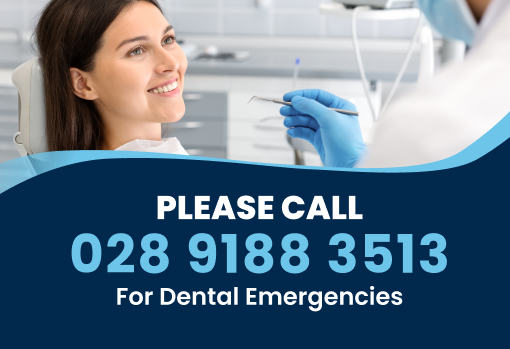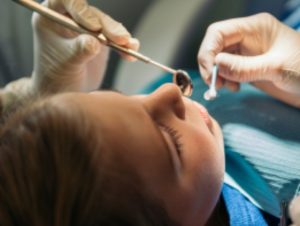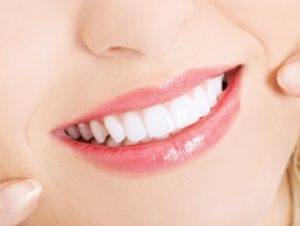Discovering bleeding gums after brushing or flossing your teeth, or when chewing on something crunchy, crispy or hard can mean that you are facing the prospect of gum disease. While normally relatively painless, bleeding gums should be taken seriously, as they can lead to more serious problems if left untreated. If you do not treat this early sign of gum disease, it can lead to persistent bad breath, a horrible taste in the mouth, loose teeth and shrinking gums.
How to handle bleeding gums at home
If you experience bleeding gums at home, this is not necessarily a sign that you should panic about your oral health. If the blood is minimal and painless, there are ways you can manage it at home. Ensuring that your dental hygiene routine is aimed at clearing plaque and bacteria and protecting your teeth and gums can not only help alleviate the symptoms of gum disease, but keep them away altogether.
Some top tips for preventing gum disease include brushing your teeth with toothpaste that contains fluoride at least twice a day. Floss or use interdental brushes at least once a day to get into the harder-to-reach areas. Use a soft-bristled brush to prevent damage to the tooth enamel. Don’t rinse your mouth out with water straight after brushing, as this can wash away the fluoride and other helpful ingredients in the toothpaste and mouthwash.
You can and should brush bleeding gums, as this will clean away bacteria that will make the bleeding worse if left to multiply. If you are assiduous with cleaning in this regard, bleeding gums should clear up within three to ten days. Should the bleeding last longer than that or become painful, seek specialist medical help.
When to see a dentist
It is good practice to arrange regular routine check-up appointments with your dentist. You can mention the appearance of bleeding gums at any of these sessions if the timings are suitable. It is likely that blood will appear when the dentist is examining your teeth in any case if gum disease is present. Your dental team will be able to give you advice on how to look after your gums to prevent them from bleeding in the future.
However, if you are experiencing pain or swelling alongside bleeding gums, it is wise to seek emergency dental advice straight away. Other more serious symptoms that require further investigation by a dentist include ulcers, red patches and lumps on the gums or elsewhere in the mouth. Bleeding gums in children must always be examined by a dentist as a matter of urgency.
Additionally, if you notice bleeding gums straight after a trauma-related incident, such as a fall, facial injury or biting down painfully on something hard, it is advised to seek more specialist medical help, such as an emergency dental clinic or hospital. Sudden bleeding could be a sign that one or more teeth have been loosened in their socket and swift action must be taken in this case to avoid them falling out altogether. Call 111 for emergency or out-of-hours help and advice from the NHS over the phone.
How to avoid bleeding gums in the first place
Booking and attending regular dental check-up appointments is vital if you want to avoid the problem of bleeding gums. Your dental team can spot early signs of gum disease and give you advice on how to care for your teeth. If there are minimal signs of gum disease, or bleeding gums are not an issue, your dentist can help you maintain this desirable state of health through brushing tips, toothpaste and mouthwash recommendations, help using dental floss and interdental brushes and more.
Other ways to help avoid bleeding gums include giving up (or never starting) smoking, visiting the dental hygienist regularly and maintaining a rigorous dental hygiene routine at home. As gum disease can be hugely exacerbated by the build-up of plaque and bacteria in the mouth, watching what you eat and how well you clean your teeth can also prove highly effective in keeping bleeding gums at bay. Teaching young children various healthy brushing habits can also set them up for a life of excellent oral hygiene without bleeding gums.





